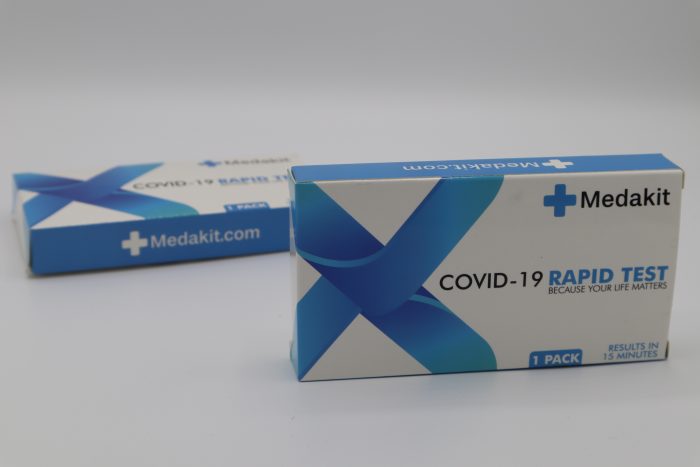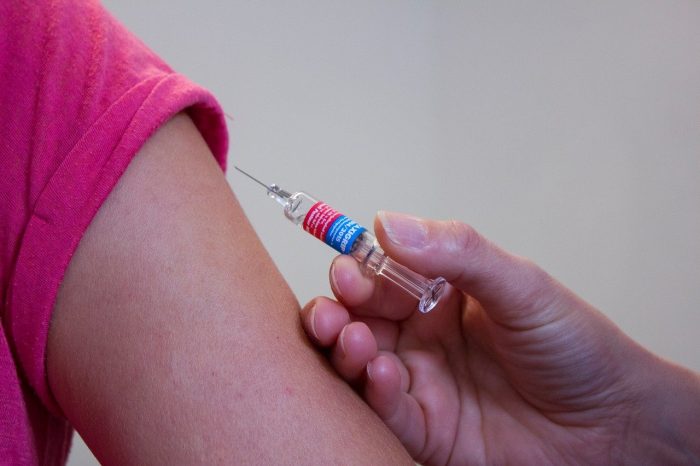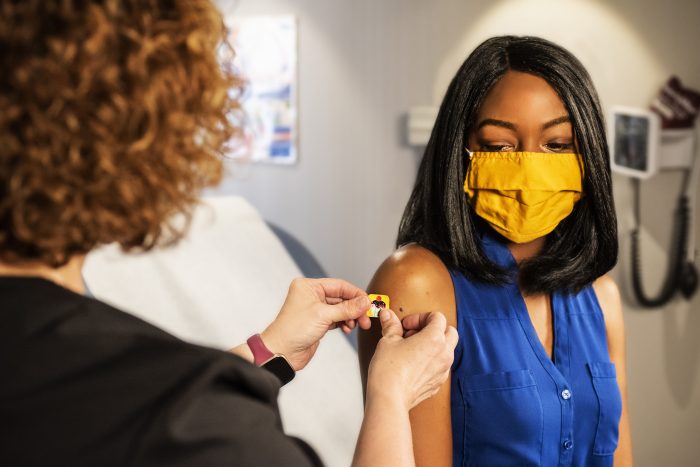COVID-19
Long-Term Care Facility/Task Force Crisis Staffing Support Ending
A message from the Department of Health:
We are writing to inform you that the Pennsylvania Department of Health will no longer be able to provide short-term crisis staffing support or staffing support for test swabbing missions as of January 14, 2023. This decision has been made due to the exhaustion of funds designated for this purpose. We want to assure you that we will do our best to assist with a smooth transition.
The Department remains committed to providing opportunities to build long-term resilience into long-term care facilities that includes bolstering Pennsylvania’s long‑term care workforce development and retention.
We strongly encourage you to engage with your local LTC RISE partner. LTC RISE will continue to provide COVID-19 outbreak response consultative support. LTC RISE will also continue to support quality improvement project opportunities, including projects focused on workforce development and retention.
We also remind you that the Long-Term Care Quality Investment Pilot (QIP) is another opportunity which can benefit skilled nursing facilities, personal care homes, assisted living facilities, and intermediate care facilities. We urge facilities to apply for funds to invest in key areas that include staff development and retention. Applications for QIP are due Saturday, December 31, 2022, by 1:30 pm.
Thank you for your continued efforts protecting Pennsylvania’s most vulnerable residents and for your understanding and cooperation during this time.
Federal Telehealth Update and Policy Impact Webinar
Holiday Season Health & Safety Reminders
As the holiday season approaches, remember to protect yourself and others by staying up-to-date with your COVID-19 and flu vaccines. You may be eligible to receive your flu vaccine at the same time as a recommended COVID-19 vaccine. Your healthcare practitioner or pharmacist can help you decide if you should receive both vaccines at the same time.
Flu Vaccine
CDC recommends that everyone 6 months and older should get a flu vaccine every flu season, with rare exceptions. Vaccination is particularly important for people who are at higher risk of serious complications from influenza. A full listing of people at Higher Risk of Developing Flu-Related Complications is available.
COVID-19 Vaccine
CDC recommends that people ages 5 years and older receive one updated (bivalent) booster if it has been at least 2 months since their last COVID-19 vaccine dose, whether that was:
- Their final primary series dose; or
- An original (monovalent) booster.
People who have gotten more than one original (monovalent) booster are also recommended to get an updated (bivalent) booster.
Staying up-to-date with COVID-19 vaccination is important for maximum protection. You are up-to-date with your COVID-19 vaccines if you have completed a COVID-19 vaccine primary series and received the most recent booster dose recommended for you by CDC.
You are still up-to-date if you receive all COVID-19 vaccine doses recommended for you and then become ill with COVID-19. You do not need to be immediately revaccinated or receive an additional booster.
Updated (bivalent) boosters became available on:
- September 2, 2022, for people 12 years of age and older; and
- October 12, 2022, for people aged 5–11.
Your healthcare practitioner, including your pharmacist, can help you determine if you are up to date with your vaccines.
Additional Resources
ACCSES Matters — December 21, 2022
Federal Government Offers 4 Additional Free COVID Tests Per Household

RCPA Submits IBHS Regulatory Review to IRRC
On behalf of the RCPA IBHS Providers and the children and families of Pennsylvania, RCPA has requested the Independent Regulatory Review Commission (IRRC) to reopen for review Regulation #14-546: Intensive Behavioral Health Services, based on section 8.1 of the Regulatory Review Act (71 P.S. § 745.8a).
The premise of our recommendations addresses the challenges and barriers IBHS providers have faced in creating the staffing infrastructures and meeting the burdensome operational protocols for regulatory compliance. The overreaching nature of the regulations, coupled with the impact of the pandemic, has caused great strain on an already depleted behavioral health workforce. These system stressors limit the ability to provide vital, quality services to children and families. Due to the prohibition for the use of waiting lists, it is difficult to capture the true number of children and families going without these essential services. We contend there are thousands of children across the Commonwealth with unmet treatment needs and written orders for IBHS services who await care.
The current lack of access to care is a result of the workforce crisis and operational requirements of implementing the regulations. We feel these access issues and children waiting for services are compelling reasons, in the interest of the public, to merit a review of the regulations.
The COVID-19 DHS regulatory flexibilities provided initial relief for providers, and OMHSAS continues to offer waivers to agencies experiencing critical staffing shortages. Providers are grateful for these temporary solutions; however, these waivers do not address the long-term impacts of the current regulatory requirements. Providers continue to struggle to hire qualified staff and contend with burdensome operational requirements, many of which negatively contribute to the efficiency of care delivery.
The expressed purpose of the IBHS regulations was to ensure access to quality care in a consistent and efficient manner. Conversely, the result has been a labyrinth of regulatory and operational interpretations, differentiated reimbursement for the same services, and a human services workforce crisis with no upcoming relief.
RCPA would like to thank the members of the RCPA IBHS Steering Committee for their commitment to conduct the review and the Commission for their willingness to consider this request. We believe these recommendations, if implemented, can address the barriers identified without compromising the original vision for high-quality services and broad access to care.
At last correspondence, the IRRC is in receipt of the recommendations. We will be providing a copy to the Office of Mental Health and Substance Abuse Services (OMHSAS), as requested by the Commission. We will continue to keep members apprised of the review process. If you have further questions, please contact RCPA Policy Director Jim Sharp.
Inside Aging December 2022 Newsletter Now Available
Flu and COVID-19 Vaccinations and Boosters — Holiday Guidance

ODP Announcement 22-118 reminds Office of Developmental Programs (ODP) providers of the expectation to support individuals to access all available and recommended vaccinations and promote health and safety by providing helpful reminders about holiday gatherings.
ODP expects that providers will ensure that all individuals supported have timely opportunities to remain up-to-date with COVID-19 vaccination as defined by the CDC and are educated on how to practice heathy habits. This announcement also shares resources available to support people in making safe decisions during the holiday season.
ODP Guidance for 24-Hour Annual Training Requirements in Training Year 2023
ODP Announcement 22-111 reminds providers that any regulation that requires completion of 24 hours of training related to job skills and knowledge each year, as well as any regulations that require the provision of training that encompasses the six areas required by regulation, are in full effect. Providers must comply with these requirements.
The Office of Developmental Programs (ODP) recognizes that providers may still be struggling to meet the 24-hour training requirements due to the prevalence of infectious or communicable diseases and continued workforce insufficiency; as such, the following guidance will be applied for training years that end in calendar year 2023:
- Any training provided that is specific to the mitigation of risk related to infectious and communicable disease may be counted towards the 24-hour training requirements required by regulation. Such training includes, but is not necessarily limited to:
- Social distancing;
- Personal protective equipment use (donning, doffing, fit testing);
- Contact tracing and notifications;
- Mask, face covering, or face shield use;
- Cleaning and disinfection practices;
- Screening for signs and symptoms of infectious disease;
- Reporting procedures related to signs and symptoms of infectious disease;
- Notification processes due to infectious reportable infectious disease;
- Characteristics and methods of transmission of infectious disease;
- COVID-19 transmission risk by pre-symptomatic and asymptomatic individuals;
- Safe and healthy work practices and infection control measures;
- Supporting individuals to engage in mask wearing, social distancing, etc.;
- Vaccine safety, efficacy, and access;
- Set up and use of technology in providing remote service delivery or supporting individuals to connect with friends and family;
- Remote monitoring;
- Use of the Supports Coordinator Check-In for Well-Being Tool;
- Engaging in meaningful conversations during check-ins;
- SC Individual transition guide;
- Transition discussion and resources video; and
- Reviewing Centers for Disease Control (CDC) and state or local guidelines and trends.
- Any component of a department-approved Medication Administration Course.
Licensed Providers may self-assess regulatory compliance using ODP’s Inspection Scoresheets or Provider Self-Assessment Forms. If a provider identifies areas of noncompliance while completing a self-assessment, provided those noncompliance areas have been corrected, licensing staff will not identify those areas as noncompliant. Violations identified and subsequently corrected through the self-assessment process will not be cited on a Licensing Inspection Summary.
Please contact the appropriate ODP Regional Program Office or the Department’s Regulatory Administration Unit with any questions about this guidance.














